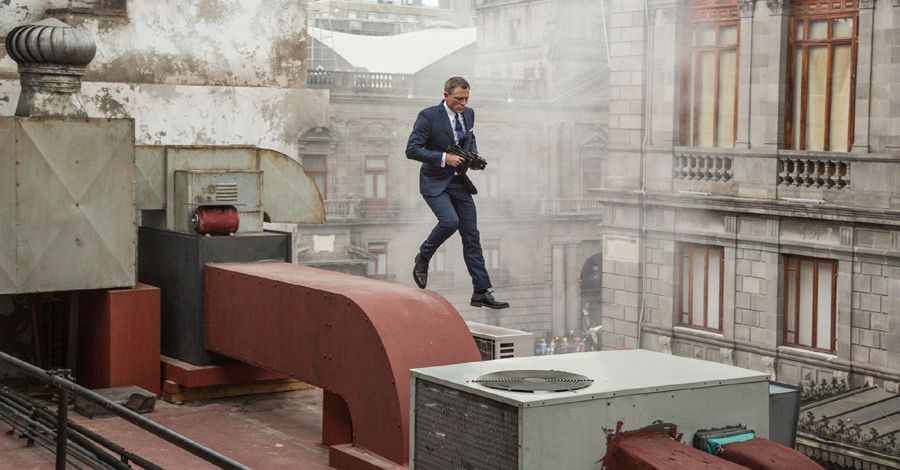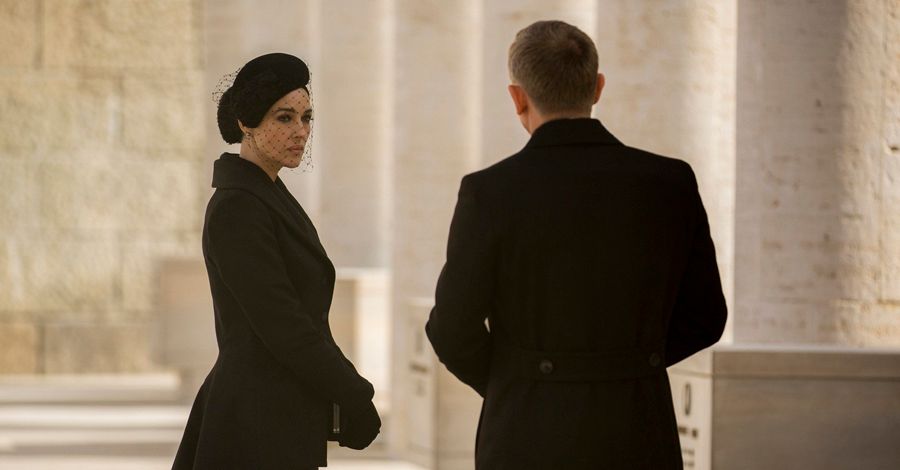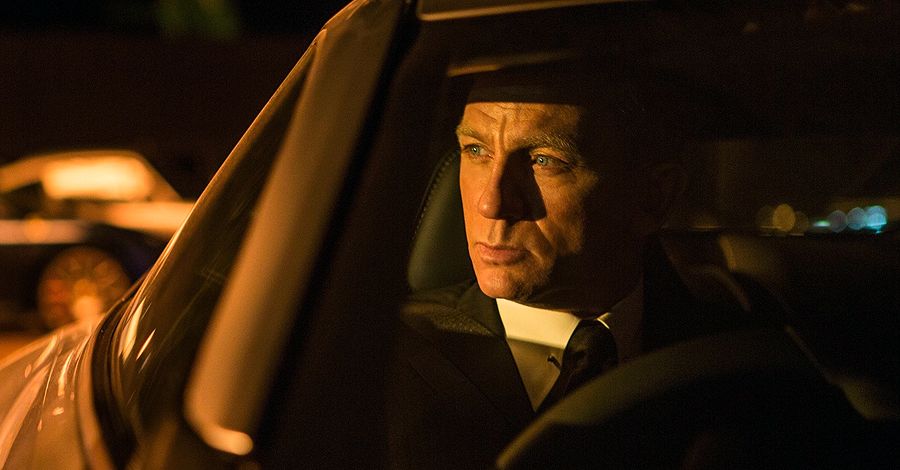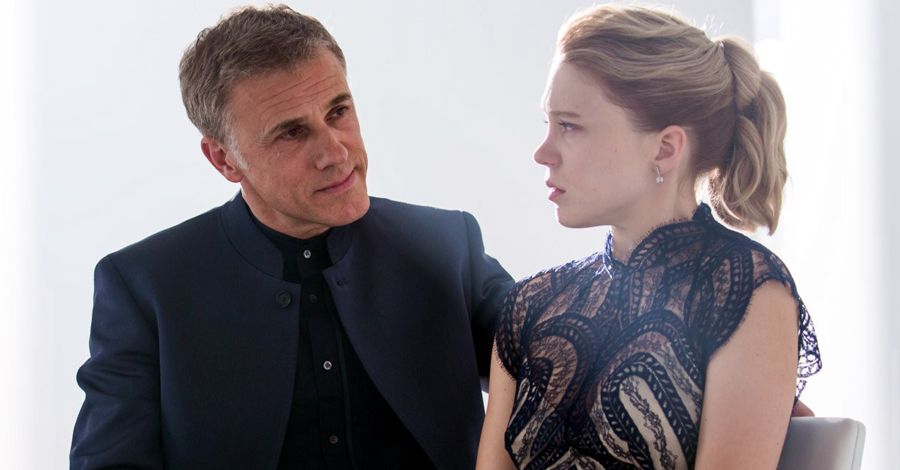Much like its iconic hero James Bond, "Spectre" has an impressive arsenal of high-tech tricks at its disposal, a cadre of skilled and dependable allies with reputations for getting the job done right, and unfettered access to the most exotic of locales. What "Spectre" lacks, however, is a genuine license to thrill.
The 24th film in the long-running franchise – a cinematic staple since 1962 – is the most aggressively mediocre entry since Daniel Craig assumed the coveted mantle of 007 so adroitly in 2006. Neither the worst of the Craig-led films – the limp, dour, threadbare "Quantum of Solace" still holds that title – nor destined to lurk at the lower echelons of the series, "Spectre's" creative malaise is nevertheless surprising, given the cheeky, celebratory charms of its predecessor "Skyfall," which stylishly and playfully marked the 50th anniversary of "Dr. No" while still serving up a slightly deeper look at the Bond behind the gun barrel.
All the high-end ingredients from that previous creatively and commercially successful effort were reassembled for "Spectre": director Sam Mendes ("American Beauty") was back behind the camera; the story-crafting team of John Logan ("The Aviator," "Penny Dreadful"), veteran Bond film scribes Neal Purvis and Robert Wade reassembled, along with newcomer Jez Butterworth ("Edge of Tomorrow," "Black Mass"); and Craig was contracted to return once more, presumably to further realize the distinctive qualities he'd brought to the role that had – as much as anyone can after Sean Connery – made Bond his own.
But the same creative spark that fueled "Skyfall" to such pleasing heights never quite ignites in "Spectre," despite its promise to simultaneously knit together the various villainous threads that have been woven throughout the Craig-era films, and tie them in to a retcon introduction to the legendary global crime and terrorism syndicate that has bedeviled Bond since his creator, author Ian Fleming, conjured it up in 1961.
The story begins with Bond on a mission in Mexico to avenge his beloved MI6 superior M (Judy Dench), killed off in "Skyfall.” Against a Day of the Dead backdrop – evoking a touch of "Live and Let Die" – things get off to a fairly promising start with a dynamic helicopter stunt sequence – hints of "For Your Eyes Only" – despite a near-constant lack of story logic. But when the plot attempts to thicken, Bond is benched by the reluctant new M (Ralph Fiennes) as the latter grapples with political gamesmanship even as 007 finally has a semi-concrete lead in the larger conspiracy that's plagued him since "Casino Royale" – a thin one, in the form of a ring stamped with an octopus (another bit of recurring Bond imagery).
Thus, Bond is forced to go rogue and must rely on only his most trusted allies, Q (Ben Whishaw) and Moneypenny (Naomi Harris), as he works his way into SPECTRE through a sexually charged tete-a-tete with a requisite Bond Girl (an age-appropriate Monica Bellucci as a bad girl with a possible heart of gold); throws down with a wildly over-matched henchman (a very welcome Dave Bautista as the brutally efficient Mr. Hinx, one part Odd Job and one-part Jaws); and participates in politely threatening repartee with the megalomaniacal villain of the piece, Christoph Waltz, whose Franz Oberhauser hints at a link to 007's past. Along the way, 007 teams with that other Bond Girl archetype: the initially reluctant but entangled good girl, Dr. Madeleine Swan (Lea Seydoux of "Blue Is the Warmest Color").
In "Skyfall," an assortment of homages – from whimsical nods to surprise character reveals to a downright star turn by a "Goldfinger"-era Astin-Martin – worked to terrific effect. In "Spectre," however, the many tips of the hat feel far more forced and leaden, and contribute to its overpowering problem: It feels like we've seen it all before, only better. The film will sit just fine on the shelf next to the many competent but otherwise underwhelming entries in the Bond canon; every Bond actor has at least one on his resume.
But most disappointing is that Craig's debut in "Casino Royale" seemed to clear the deck of the often too-formulaic 007 entry, and make way for a new kind of Bond. Craig added a tortured, imperfect element to the character's established polish and charm, without drastically darkening Bond. The character became both more human and more deadly in one fell swoop, and the filmmakers found a way to inject a bit more of Fleming and less of the franchise’s expected tropes without losing the right level of practical-stunt, minimal CGI spectacle.
The promise of all of that progress took a major hit with the messy, over-edited and largely charmless "Quantum of Solace," which was fueled almost solely by Craig's magnetism. But the craftsmanship, charisma and franchise-fondness on display in "Skyfall" suggested that 007's ship was back on a proper course, and that Craig would have new depths and dimensions to explore as Bond, a glamorous but gritty – and sometimes misanthropic – throwback grappling with the modern world whenever life lured him out of the shadows.
Yet the retro influences that popped and sizzled in "Skyfall" seem like relics in the far-too-generically appointed "Spectre," which feels as autopilot-driven as some of the later Roger Moore entries, so factory-assembled that it suffers from two of the most common problems that have plagued the franchise over five decades.
First, there's no chemistry between the leading man and the central Bond Girl. Seydoux possesses considerable talent and cinematic appeal, but here, in an under-developed, confusingly motivated role and with no palpable romantic frisson with Craig, she's lost at sea, joining the legion of generic Bond Girls that preceded her – and without even a memorable double-entendre moniker to show for it.
Then there's the villain: You've likely read rumors of who Franz Oberhauser may or may not be, but in any event Waltz's role is realized as perhaps the most tired of the increasingly tiresome Bond clichés. Some of that’s due to the writers’ ham-fisted attempt to casually graft some personal history onto his conflict with Bond. However, some of it, sadly, is due to the over-familiarity of Waltz's performance. As brilliant as he can be when armed with dialogue penned by Quentin Tarantino, the actor has been so overly pigeonholed by Hollywood into playing verbose, well-mannered monsters that without strong writing to help him escape this now-familiar image, Oberhauser emerges as a most vanilla villain, one you neither hate nor love to hate.
Speaking of love/hate relationships, there's the problem of our leading man himself: Craig, like Connery before him, has a thorny relationship with his most famous role, but I never suspected it would show on screen. But it does here. Some scenes seem charged by that great connection Craig has to the post-modern 007, while others seemed walked through efficiently but indifferently, as if the cold, callous attitude of the assassin side of Bond has seeped into the performance, dimming the also-necessary fire and charm.
Similarly, Mendes' enthusiasm for the franchise seems to wax and wane throughout the film, although both show up to deliver some particularly well-staged action sequences -- but, frankly, none as well-conceived and thrilling as this summer's bigger, bolder spy-franchise film "Mission: Impossible – Rogue Nation.”
And therein may be the problem when it comes to films like "Spectre," at best a placeholder in the Bond pantheon: As the granddaddy spy-movie hero of them all, Bond stands, deservedly, at the top of the mountain, but he perhaps needs to remind himself that getting the job done capably isn't always enough. Getting it done with style, however, is everything.
“Spectre” opens today nationwide.





